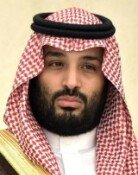Young Players Who Advanced to Olympic Quarterfinals Will Be Tested in World Cup Qualifier
Young Players Who Advanced to Olympic Quarterfinals Will Be Tested in World Cup Qualifier
Posted August. 31, 2004 22:06,

The 2004 Athens Olympic Games are now over. The Korean Olympic soccer team achieved the feat of advancing to the quarterfinals for the first time in 56 years. It is now time to shift gears and prepare the national squad for the World Cup Germany 2006. The head coach of the Korean national soccer team, Johannes Bonfrere, personally watched the Olympic soccer matches in Athens and recently returned to Korea. We met him in his quarters at the Seoul Grand Hilton Hotel on August 31. He showed up wearing a white shirt and navy blue cotton pants. Bonfrere looked as casual as the first day he signed up for his job.
Through the Athens Olympics, I verified the potential of Koreas young players. During the World Cup qualifying round, I will check if they are able to play at a world-class level, said Bonfrere.
Eight players from the Olympic team were summoned to participate in practice drills of the national soccer team, which will start on September 2, in order to prepare for the second leg of the World Cup Germany 2006 qualifying round against Vietnam of Group 7 on September 8. If one includes Yoo Sang-chul, who played on the Olympic team as a wild card, almost half of the 20 players on the national team are from the Olympic team.
One should ask if Korean soccer is undergoing a generation change. When asked about the generation change, Coach Bonfrere avoided giving a clear answer, saying, Maybe it is, maybe it is not.
I almost finished assessing the current players during the Asian Cup, so this time I picked a lot of young players. I selected players from the Olympic team based on their potential, and if their potential becomes reality, they will be part of the national team, and that will be a natural generation change. In these words, one can see Bonfreres will to change generations.
Bonfrere did not hide his high expectations towards the young players of the Olympic team when he expressed, I am opening various possibilities. If the players themselves play well, the future of Korean soccer will be bright.
After watching the Olympic soccer matches, Bonfrere predicted that the world soccer trend would shift towards much faster soccer at World Cup Germany 2006. Although there are still many European teams using the 3-4-3 formation employing three defenders, one cannot ignore the significant trend that Greece set by winning Euro 2004 with a maximum of six defenders.
The changes that Bonfrere has pursued in Korean soccerposting three wins, two draws, and a loss in his first six games, including a few games in the Asian Cupafter coming to his post are closely related to such trends in world soccer. He evaluated this, saying, Throughout countless training sessions and matches, I felt that the abilities and the understanding of tactics by Korean players is far above what I expected, and in all, as a team, they are at a quite high level.
He also pointed out some weaknesses, saying, The players tactical field of vision and reaction time to certain situations is small, and the stamina and technical power to dominate during 90 minutes is still not there. In the future, I plan to summon diverse players to the national team and make the optimum combination of players.
On the other hand, Korea leads in the World Cup qualifying division, Group 7, which is composed of Korea, Vietnam, Lebanon, and Maldives, with two wins and a draw, and won the first leg match against Vietnam 2-0, which was held on June 9 at the Daejun World Cup Stadium in Korea.
Sang-Ho Kim hyangsan@donga.com







